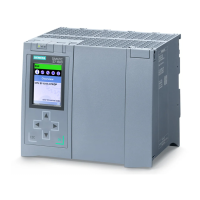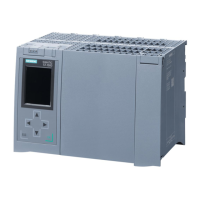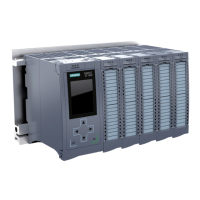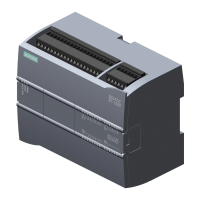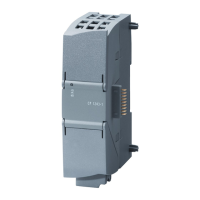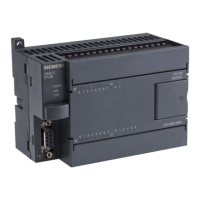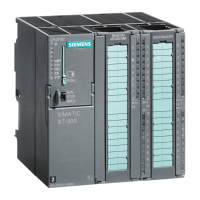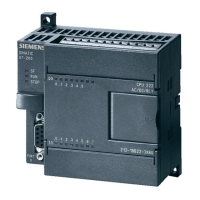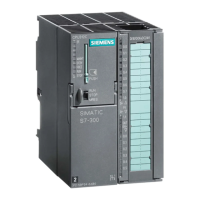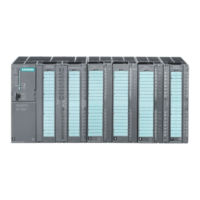R/H CPUs and load current supply
Table 7-2Wiring rules for R/H-CPUs and load current supply
Wiring rules for ... R/H-CPU Load current supply
- -Permitted cable cross-sections of solid cables (Cu)
- -
0.25 to 2.5mm
2
0.5 to 2.5mm
2
Without wire-end fer
rule
AWG
1)
: 24 to 14 AWG
1)
: 20 to 14
0.25 to 1.5 mm
2
0.5 to 1.5mm
2
Permitted cable cross-sec
tions of flexible cables (Cu)
With end sleeve
AWG
1)
: 24 to 16 AWG
1)
: 20 to 16
Number of wires per connection 1 1
Stripped length of the wires 10 to 11 mm 7 to 8 mm
Without plastic sleeve Design A, 10 mm long Design A, 7 mm longEnd sleeves according to
DIN46228
With plastic sleeve 0.25
to 1.5mm
2
Design E, 10 mmlong Design A, 7 mm long
Sheath diameter - 8.5 mm
Tool 3 to 3.5mm screwdriver, conic
design
3 to 3.5mm screwdriver, conic
design
Connection system Push-in terminal Screw terminal
Tightening torque - From 0.5Nm to 0.6Nm
1)
American Wire Gauge
Permissible cable temperature
NOTE
Permissible cable temperature
When selecting the cable, note that the cable temperature during operation can be up to
30°C above the ambient temperature of the S7-1500R/H redundant system.
Example: If you use the system in a switchgear cabinet at an ambient temperature of 30°C,
you must use a connecting conductor with a temperature range of at least 60°C.
With terminals that carry a current load of ≥ 8 A during operation, you must expect a cable
temperature of up to 65°C above the ambient temperature.
You can more exactly determine the required cable temperature for each application. To do
so, measure the cable temperature in the system at a load corresponding to the maximum
possible power and ambient temperature values.
You should specify other connection types and material requirements based on the electrical
characteristics of the circuits you use and the installation environment.
175
Wiring
7.4 Wiring rules
S7-1500R/H redundant system
System Manual, 11/2022, A5E41814787-AD

